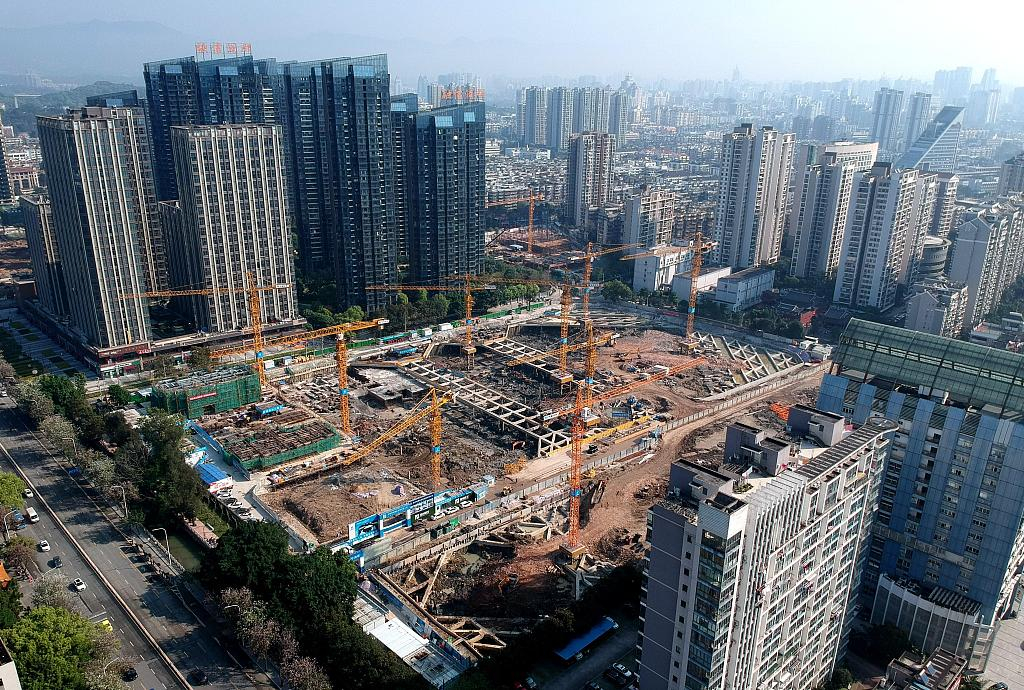

The Chinese State Council announced 11 measures to promote the opening up of the financial industry. This represents a series of important measures in terms of expanding its financial markets in banking, securities, and assets management and also the newly listed Sci-Tech Innovation board, the STAR Market.
The Chairman of the Board of Directors of real estate investment trust Gecina, Bernard Carayon, thinks this will offer more opportunities for foreign investors and that it will be a fair playing field for them. He said the most important challenges for foreign investors and financial markets will be the quality of assets, which will lead to fair competition and provide better quality services. In other words, the market needs to have enough rating agencies, not only local rating agencies, to find out the level of risks of assets and ensure investors can invest safely.
As the Chinese leadership has emphasized that the ultimate goal of financial markets is to serve the real economy, Carayon mentioned that there are same concerns in both China and Europe about the way investing affects liquidity in the real economy.
He pointed out that one of the methods is to invest in the technology zones, and China has done very well in this field. But he made the point that investing in the "low-carbon economy," such as green firms, will help decrease the consumption of energy. Developing sustainability requires a large amount of money, and it is important to send the money to the right place.
At the same time, the National Bureau of Statistics released information about changes in the sales prices of commercial housing in 70 large-and medium-sized cities in June.

China's National Bureau of Statistics released data showing that in the first three months of 2019 the national real estate development investment reached 2,380.3 billion yuan, up 11.8 percent year on year, April 17, 2019. /VCG Photo
The Chinese government issued a series of regulations to land property developers, since "the housing market has been heated for many years," said Vincent Mo, the Board Chairman of Fang.com. "China's property market has always been under regulations, and financial measures, definitely, are the key measures to control the real estate market."
Mo is optimistic about the current real estate market in China, and mentioned the ongoing trend of a large group of people moving from rural to urban areas, so he believes housing prices will go up, but the way to control it needs to be considered.
Although there are more people migrating to first-tier cities, Mo said, "It is a bad news for small cities." More specifically, China's property market can be listed to three markets, first-tier cities such as Beijing, Shanghai, Shenzhen, Guangzhou; second tier cities such as provincial capitals; and third-tier cities that are around big cities, where he feels there are great prospects. But small or mid-sized cities that are far from the centers will not have a bright future, since "the main demand is always coming from the big cities," he said.
Regarding the situation of housing prices, Mo thinks it is stable and in control since the regulations were put into effect two years ago. Although prices are increasing in some cities, they are still in a manageable range.
"I do not think we have big problems in the real estate industry, but the new policies are also for preventing those abnormal situations from coming about again, more like cooling down the situation," he said.
Mo also mentioned a new concept of "group cities development." He stressed that this is an inevitable trend globally, not only in China where more people are concentrating in big cities, and moving out from rural parts that will eventually become less populous in the future. For instance, Paris and London have about 20 or 30 percent of their countries' whole population.
Therefore, he suggested that can we have a big Beijing or Shanghai area, surrounded by 10 or 20 cities. Also, he advised that since we cannot simply develop one city, combining the expertise of sociologists and traffic planners in the final planning of a group of cities can boost the development of financial market and real estate.
(If you want to contribute and have specific expertise, please contact us at opinions@cgtn.com.)

Copyright © 2018 CGTN. Beijing ICP prepared NO.16065310-3
Copyright © 2018 CGTN. Beijing ICP prepared NO.16065310-3